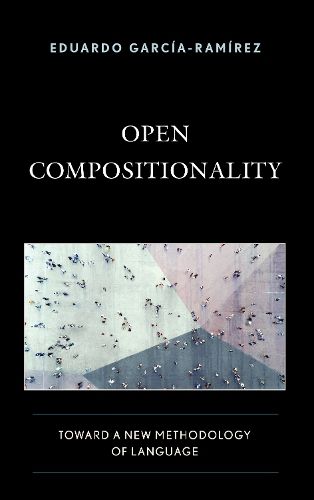Readings Newsletter
Become a Readings Member to make your shopping experience even easier.
Sign in or sign up for free!
You’re not far away from qualifying for FREE standard shipping within Australia
You’ve qualified for FREE standard shipping within Australia
The cart is loading…






Open Compositionality: Towards a New Methodology of Language argues that natural languages, like English and Spanish, are not only systems of representation useful for communication but also, and most importantly, highly interactive cognitive capacities allowing humans to engage in complex forms of cognition. This view goes against the orthodoxy in philosophy of language, which considers natural languages to be specialized systems consisting of only linguistic elements and functioning in a closed compositional manner, allowing for a fully formal, algebraic descriptions. Eduardo Garcia Ramirez rejects the longstanding principle of compositionality, according to which the meaning of any complex expression is fully determined by its parts and the way they are combined, and substitutes it with an alternative, open and interactive one. This novel view of the nature of language better accounts for the empirical evidence. Garcia Ramirez develops an account of open compositionality, accompanied by the cognition first methodology, in which natural languages are conceived as supermodular cognitive capacities that allow for interaction among multiple distinct areas of human cognition. The explanatory success of this novel proposal and its accompanying methodology are tested by the author’s account of three enduring philosophical problems: substitution failure, empty names, and the nature of moral discourse.
$9.00 standard shipping within Australia
FREE standard shipping within Australia for orders over $100.00
Express & International shipping calculated at checkout
Stock availability can be subject to change without notice. We recommend calling the shop or contacting our online team to check availability of low stock items. Please see our Shopping Online page for more details.
Open Compositionality: Towards a New Methodology of Language argues that natural languages, like English and Spanish, are not only systems of representation useful for communication but also, and most importantly, highly interactive cognitive capacities allowing humans to engage in complex forms of cognition. This view goes against the orthodoxy in philosophy of language, which considers natural languages to be specialized systems consisting of only linguistic elements and functioning in a closed compositional manner, allowing for a fully formal, algebraic descriptions. Eduardo Garcia Ramirez rejects the longstanding principle of compositionality, according to which the meaning of any complex expression is fully determined by its parts and the way they are combined, and substitutes it with an alternative, open and interactive one. This novel view of the nature of language better accounts for the empirical evidence. Garcia Ramirez develops an account of open compositionality, accompanied by the cognition first methodology, in which natural languages are conceived as supermodular cognitive capacities that allow for interaction among multiple distinct areas of human cognition. The explanatory success of this novel proposal and its accompanying methodology are tested by the author’s account of three enduring philosophical problems: substitution failure, empty names, and the nature of moral discourse.